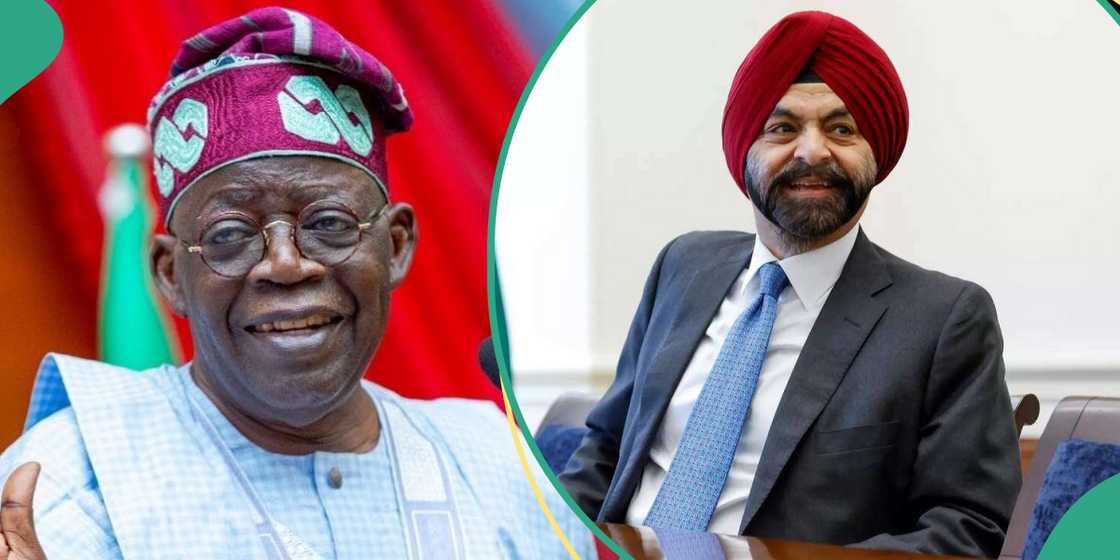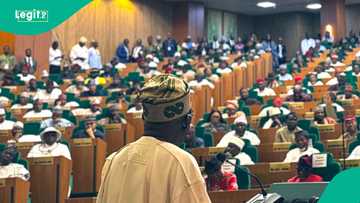"The Lessons are Clear": World Bank Mentions Timeframe Economic Hardship Will End in Nigeria
- World Bank said Nigeria's path towards economic transformation will be determined by its capacity to sustain reforms
- It stated that Nigeria's path toward economic transformation will be determined by its capacity to sustain significant reforms for at least 15 years
- The bank's official emphasized that to address Nigeria's fundamental problems, continuous policy implementation and political commitment are required
Legit.ng journalist Zainab Iwayemi has over 3-year-experience covering the Economy, Technology, and Capital Market.
The ability of Nigeria to maintain important reforms for at least 15 years will determine its course toward economic transformation, according to Indermit Gill, senior vice-president of the World Bank Group.

Source: UGC
Speaking at the 30th Nigerian Economic Summit in Abuja, the official emphasized the necessity of consistent policy implementation and political commitment to solve the nation's long-standing structural issues that impede long-term growth and development.
“There is no shortcut to economic transformation. Nigeria must stay the course for another 10 to 15 years of focused reforms. The difficult decisions taken today will not yield immediate results, but they will set the foundation for a more prosperous and stable Nigeria,” he said.
The warning comes amid mounting public discontent following the removal of petrol subsidies and the unification of the country’s multiple exchange rates.
While these reforms have triggered inflationary pressures and exacerbated the cost of living for many Nigerians, the World Bank official insisted that backtracking would have disastrous consequences for the nation’s economic future.
"Nigeria is in a unique time of opportunity and riskk", he remarked.
Many people believe that in order to stabilize the economy, lower the fiscal deficit, and draw in foreign investment, the recent adjustments to the exchange rate regime and the removal of fuel subsidies are essential.
He claimed that these actions have worsened millions of Nigerians' suffering and that this has raised concerns that political pressure would cause the reforms to be reversed.
Gill asserts that Nigeria needs to resist the urge for temporary solutions. As a warning, the official cited the nation's prior experiences with mishandled oil earnings in the 1970s and 1980s.
“Periods of poor oil wealth management have left Nigeria trapped in cycles of boom and bust, with painful consequences for millions of citizens that have lasted for generations,” he said.
He pointed out that Nigeria managed its oil resources more wisely during the short reform period from 2003 to 2007, enacting laws pertaining to fiscal prudence, increasing its foreign reserves, and putting policies into place that resulted in the nation receiving its first-ever sovereign credit rating.
He said that these actions, along with the banking sector changes, drew significant foreign direct investment and created the conditions for expansion.
“The lessons of those years are clear: when Nigeria commits to reforms, the rewards can be substantial,” he said.
World Bank unveils most indebted countries to Nigeria
Legit.ng reported that Nigeria has emerged as the third largest debtor to the World Bank’s International Development Association (IDA) as of June 30, 2024, marking an increase in Nigeria’s borrowing from the institution.
The development has shown a substantial move in Nigeria’s financial terrain under the government of President Bola Tinubu.
The World Bank’s latest financials show that Nigeria’s exposure to the IDA has spiked by 14.4% from $14.3 billion in 2023 to $16.5 billion in 2024.
Proofreading by James, Ojo Adakole, journalist and copy editor at Legit.ng.
PAY ATTENTION: Сheck out news that is picked exactly for YOU ➡️ find the “Recommended for you” block on the home page and enjoy!
Source: Legit.ng





